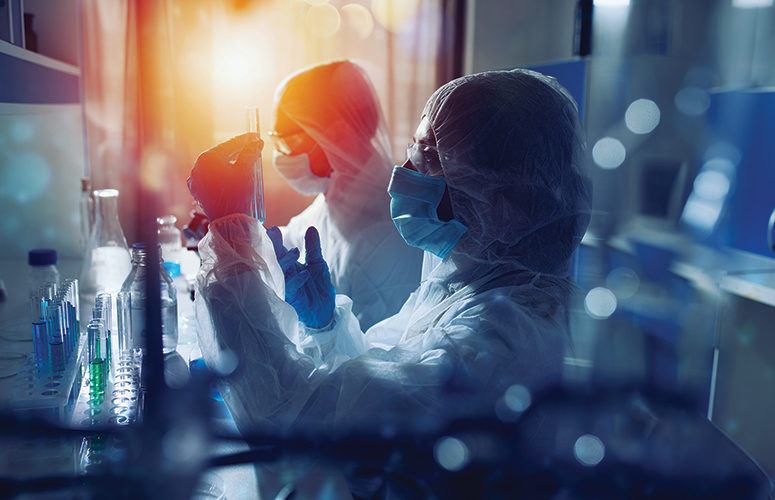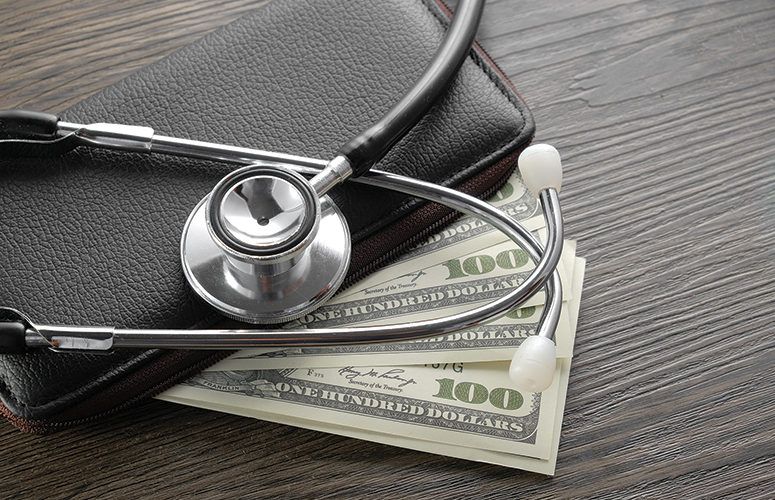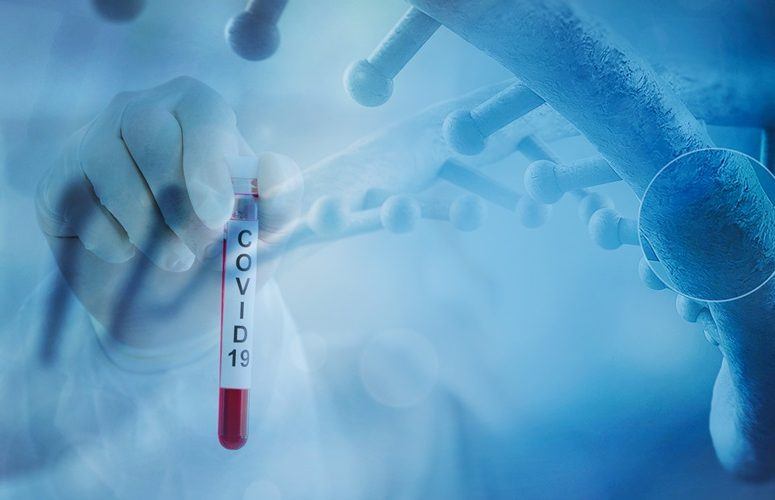
NJ Companies are on World’s Stage in Battle Against COVID-19
By Jim Pytell, Assistant Editor On Sep 10, 2020New Jersey companies have played a vital role in the battle against COVID-19 since the virus first swept across the globe earlier this year.
According to Debbie Hart, president and CEO of BioNJ, there are [approximately] 661 research programs currently underway worldwide to combat the coronavirus, which includes vaccines, therapy and testing. She says that at least 60 of the companies contributing are from New Jersey.
“Words like extraordinary and remarkable come to mind,” Dean Paranicas, president and CEO of the Healthcare Institute of New Jersey, tells New Jersey Business. “It’s a real testament to the commitment and the capabilities of our life sciences community in New Jersey. Our companies stepped up on multiple fronts with urgency and priority right away.”
One example is Rutgers’ RUCDR Infinite Biologics, which received an amended emergency use authorization from the Food and Drug Administration (FDA) in May for the first SARS-CoV-2 coronavirus test that allows people to collect their own saliva at home and send it to a lab for results.
Touching on vaccine progress, Hart and Paranicas agree that the efforts are no less extraordinary.
“Typically, vaccines take between 10 and 15 years to develop and be approved,” Hart says. “With our scientists working around the clock, and with the FDA Fast Track process along with the [federal government’s] Operation Warp Speed, the hope is that a vaccine will be available much sooner than that.”
“The timeline [for an approved vaccine] will largely be driven by the outcomes of the clinical trials,” Paranicas says. “The prevailing view continues to be somewhere in the 12-18 month range.”
Hart reiterates that while the entire research and development process is being expedited, the safety and efficacy protocols, as well as the highest standards, are still being adhered to.
At press time, Paranicas estimates that there are approximately 24 vaccine candidates currently undergoing clinical trials worldwide, as well as more than 400 therapies.
Two examples (at press-time), are Moderna and Pfizer, both of which have vaccine candidates that are currently in Phase 3 clinical studies, which, according to Hart, has offered great optimism.
“Once there’s an approval, there still has to be production, distribution and the adoption by the public, which is just as important as every other piece along the way,” Hart says. “We are cautiously optimistic, but there’s still a ways to go, for sure.”
Of course, New Jersey has been a hotbed for the life sciences industry for some time, with its companies having developed strong relationships with national industry leaders such as the National Institutes of Health (NIH) and the FDA along the way.
“One of the hopes is that the public and the government will gain an understanding of the difference that these partnerships can make, and the importance of funding various entities in a way that can make the ultimate difference of bringing therapies to market,” Hart says.
“You need to have strong contributions from the public, private and academic sectors,” Paranicas adds.
To access more business news, visit NJB News Now.
Related Articles:





